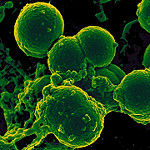Yesterday the publication eLife announced that, starting January 2017, they will begin charging a publication fee of $2,500. For more information, see this statement about creating a financially stable future for eLife. Visit the archive on PMC here.
New York Magazine has a long piece about information addiction by Andrew Sullivan called I Used to Be a Human Being.
According to an odd item in the Atlantic, which seems less crazy than it sounds once you read it, a former urologic surgeon used a 3D printed kidney to explore anecdotal stories of patients passing small kidney stones after riding roller coasters. The PubMed abstract of the paper describing the experiment he and a colleague conducted is available here.
